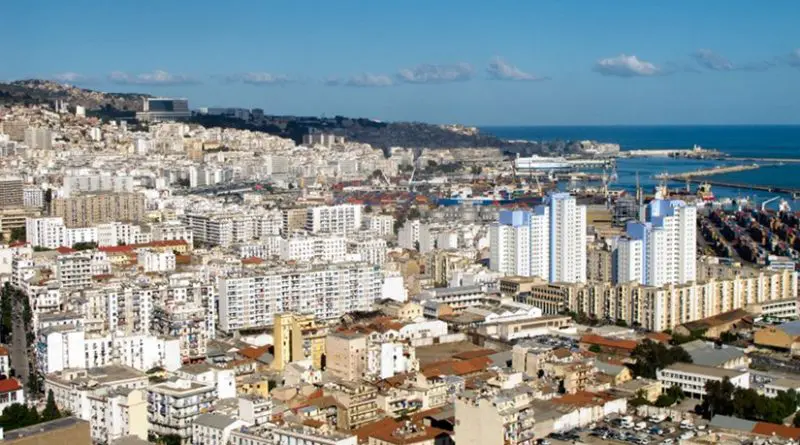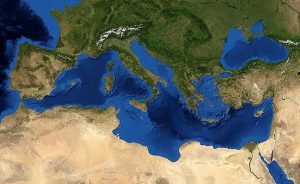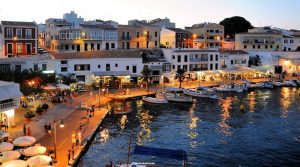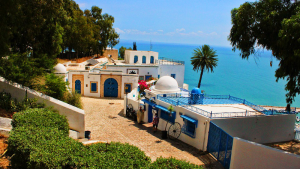Appraisal Of Politics In The Mediterranean Region – Analysis
The Mediterranean Sea is an almost entirely enclosed intercontinental sea, born from a singular geological and tectonic history. Its relief is characterized by two basins, the western Mediterranean located between the Strait of Gibraltar and Sicily, and the Eastern Mediterranean extending from Sicily to the Suez Canal. Its continental plateaus can be cut by wide and deep canyons.
The Mediterranean has been the matrix of great civilizations, of great philosophical ideas and also one of the places of the great world wars of the twentieth century. But it has also been the scene of conflicts based on intolerance to the ideas of others, the occupation of territories, the possession of wealth or the confrontation for different perceptions of the values of freedom and belief. What is the situation today? Is the Mediterranean still an important space in world geopolitics? Has its strategic interest weakened with the development of technologies, the emergence of new economic and geopolitical centers, particularly in America and Asia?
The Mediterranean has been the point of contact and rupture between East and West since Antiquity. This space has thus crystallized multiple tensions and rivalries throughout history. Samuel Huntington, in The Clash of Civilizations published in 1996, described the Mediterranean as a point of confrontation, even clash, between cultures. According to him, “in the post-Cold War world, the most important distinctions between peoples are not ideological, political or economic; they are cultural “. Today, the Mediterranean remains a major fracture zone.
So what are the different economic, geopolitical and geostrategic challenges in the Mediterranean? Which actors and which powers are confronting each other today?
Overview:
The Mediterranean is a strategic space which alone concentrates all the global challenges, whether they are security, geopolitical, economic, migratory, environmental, or even energetic. Sometimes perceived as a zone of opportunities, sometimes as a vector of crises, the Mediterranean basin is inexorably coveted by a myriad of actors, ranging from large powers traditionally established in the region, to regional actors through international organizations – all competing with each other to expand their influence.
At the crossroads of three continents, the Mediterranean is an area under tension, which has long been invested with important strategic issues: confrontation between Arabs and Europeans, rivalry between powers, colonization, control of the straits and the Suez Canal. It remains a space of confrontation between great powers, as we have seen with the Syrian question: distant powers (United States, Russia) continue to invest in it, including newcomers like China. But is it still a major strategic space for these powers?
To answer this question, we must place the Mediterranean in the current global context. In terms of trade, it is certainly not a center of the world: it lost this rank in the 15th century with the discovery of the New World. The Atlantic took the place of the Mediterranean in modern times and today it is the Pacific space that, placing Americans and Chinese face to face, would play this role.
In geostrategic terms, the characteristics of the current Mediterranean are similar to those of a peripheral space that can be described as complex.
First of all, it can be considered as a simple theater of operations, in a context where today, as in the Cold War, it is out of the question for powers to clash head-on or on their own territory. But this space is also a nerve center animated by local tensions whose impact is sometimes global, notably in the form of terrorism or around geopolitical “hot spots” such as Israel. Finally, in the South and East in particular, it is a space of ideological projection, where reality is as if submerged by local or external imaginations that seek to reshape it: Pan-Arabism in the past, competition between development models, the “clash of civilizations”, the export of democracy in 2003, the Arab revolutions, Islamism…
The Mediterranean, space, issues and conflicts
The multiplicity of issues and representations thus contributes to making the Mediterranean a space apart. It is an axis of passage between the East and the West, characterized by a major economic, social and political fragmentation, a factor of crises, regional destabilization and transnational threats (through an interpenetration of mafia trafficking such as drugs, money, illicit arms trade, terrorism).
The world powers that intervene in the region do so via “client” states, whose political stability they support or which they assist militarily. The Franco-British intervention in Libya in 2011, for example, was a powerful destabilizing factor, but the Syrian affair, in its very confusion, highlights a return to normality, with the Russians holding fast to the traditional line (unfailing support for a client), the Americans not engaging in further confrontation, and the Europeans (primarily the French and British) unable to play a leading role.
Finally, there are regional powers for which this peripheral space can constitute a space for expansion more or less independently of the major world powers: Saudi Arabia and Turkey, for example, but also Iran and, for some years now, Morocco, which, taking advantage of its political stability, has been pursuing an ambitious African policy and a strategy of industrial (automobiles) and commercial (agriculture, textiles) ties to Europe.
Europe, for its part, has a complicated relationship with this area, which is at the same time the area of its most fragile members (Greece, Italy, Spain, Portugal), the area of political problems that it has difficulty in facing together (refugees) and the object of neighborhood policies that are not very successful.
In order to understand the geopolitical function of the Mediterranean for Europeans, we must keep the notion of peripheral space but decline it. For them, the Mediterranean periphery is above all a limit, which can be defined as a “margin”, i.e. an interface. Its functions are therefore essential.
To answer the question of political instability, of Islamist tensions that run throughout the Mediterranean and have as much impact in the East (Syria, Arabia, Lebanon, Turkey) in the West (Morocco) and in the South (Egypt, Libya, Tunisia, Algeria) as in the North (attacks in Europe), it is necessary to understand that the Mediterranean is a marginal space, even marginalized.
In this context, the Union for the Mediterranean project was one of the few attempts to move the lines. Founded on July 13, 2008, the Union for the Mediterranean –UfM- was intended to reinforce the achievements of the Euro-Mediterranean Partnership (Euromed), which was set up in 1995 under the name of the Barcelona Process. The project seemed promising: 43 countries, some 40 interministerial meetings and international projects (from women’s work to digital technology) set up, 1.5 billion euros of projects planned since 2008… and only a few million euros spent. It is in fact a failure. The political and legal principles are in place, the institutions exist, but we are very far from a political union. The UfM would be a valuable tool to meet the security and development challenges that go hand in hand.
The question of geopolitical limits is thus raised: one could consider that the Union for the Mediterranean consists in extending the limits of the European Union, its principles, its functioning and its security to the southern shore of the Mediterranean. Is this possible? Certainly not in the form of political integration: Morocco applied to join the European Union in 1984, but its application was rejected in 1987, the year of the first Turkish application. A deepening of ties is possible. It is de facto in business practices (trade, subcontracting, investments) but remains difficult to formulate.
Are we out of the postcolonial period? There are great inconsistencies in the European posture towards the Mediterranean, often blurred by an ambivalent historical reading. Thus, the Mediterranean is seen as a symbolic (history), administrative (with the French, Spanish, Italian and Greek Mediterranean archipelagos) or strategic (Gibraltar, Spanish enclaves in Morocco, partnerships and alliances with former colonies) European space. The states that emerged from decolonization are marked by their own inconsistencies, between the reaffirmation of sovereignty and the maintenance of cooperative links, which sometimes have a neo-colonial dimension. Beyond the States, the populations on both sides of the sea remain marked by a history that is still alive. Colonization has created paradoxical links of love/hate, passion/rejection, between the different territories of the Mediterranean. This brings us to the last variation around the concept of peripheral space, that of the interface.
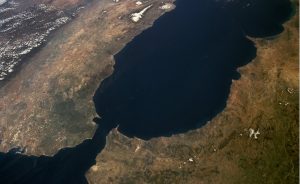
The Mediterranean, a global geopolitical issue
In a twenty first century already well underway, one of the oldest maritime trade areas is subject to many challenges. The Mediterranean Sea, junction of three continents and bordered by a great diversity of countries and cultures, is also in the age of globalization. In fact, the function of a maritime corridor is only of interest to the Egypt of the canal and some containerization hubs. For the rest, it is a trade area both (islands, North-South, East-West) and external, notably for the for the southern European port frontage. The port development is, as elsewhere, a constant reality with concerns for intermodality, but also the increased weight of environmental issues (regulatory constraints, societal pressure) and the modernity of new technologies. Modernity is also to be found in the way of approaching governance and between private and public, centrality and territories.
Colonization was based on a multiple asymmetric system: military, technological, economic, demographic and of course legal asymmetry. After the decolonization, most of this asymmetry is still in place, and with it, the symbols or representations of the colonial period remain alive. However, certain elements have changed concerning economic relations. Even if these remain very asymmetrical, the European states have understood that the economic development and the autonomous political maturation of the Mediterranean countries is a necessity for the entire region. The Mediterranean of the two shores is both a huge market to be developed and a production area that can be fruitfully associated with the powerful industrial pole of the northern shore.
The second asymmetry that has been resolved and even reversed is the demographic asymmetry, with a growing and young population on the southern shore compared to Malthusian and very aging countries in the north. The issue of migration, which is now a sensitive one, needs to be addressed in order to organize a form of economic and demographic integration of the area.
Some sectors have long relied entirely on workers from the South of the Mediterranean, such as the agricultural fruit or wine sectors in the South of France or Spain, but with very precarious working and employment conditions. The issue today is to increase the skills of the populations of the South, both for local development and to feed the flow of qualified immigrants who will no longer have much in common with those of the 1960s. In the future, doctors, nurses, programmers, but also managers and engineers from Northern Europe could increasingly be Mediterranean.
The ball is now in both camps. It makes the Mediterranean an original space for mediation, crossbreeding, and a possible model for development. It is the principle of the interface. The peripheral space can develop innovative alternative societies, a new Islam, a new co-development with competent and inexpensive executives, with of course as a corollary a balanced cooperation. But the balance is very precarious: it is built on asymmetries that are destined to evolve, and on integration dynamics that, although globally positive, can nonetheless give rise to tensions and create losers.
In this respect, the Mediterranean is one of the great challenges of an era in which it is necessary to look at marginal spaces to better understand the world. The world space could be transformed by its peripheries rather than by its centers, with the corollary that its centers will be called into question by peripheral instability and with, as a tempting solution, the withdrawal and maintenance of existing systems. But the alternative also exists, that of a margin/walk organized as an original interface opening towards a redefinition of the European perimeter. If all the countries bordering the Mediterranean were to join together, this would of course create new peripheries: the Sahara, the Arabian Peninsula… but in classical Arab geography this was already well understood. The great Arab geographers saw in the Mediterranean, as in the desert, a Sahel, that is to say, a shoreline of land and sea, the interface and the limit by definition, and the horizon that makes one dream of tomorrow.
Maghreb and European Mediterranean: interactions and paradoxes, religions and geopolitics
Relations between the Maghreb and Europe, echoing the interactions between the two shores of the Mediterranean, have emerged in rivalries or emulation, in anthropological, geopolitical and religious spaces. Between constancy and perpetual becoming, Islam in the Maghreb has had an intrinsic dynamic between consecutive theological or philosophical meanings or schools of jurisprudence. The heterogeneity of Maghreb societies is a reflection of their history, where there has been a shift from dogmatic rigorism to the advent of Sufism, mysticism and a temperate Sunnism; which is grappling with a new radicalism. Deeply oriental in its cultural essence, Maghreb rhymes with the West in its secularized context. A paradox of which it will be useful to explore a few aspects
For more than a century, the French have maintained special and passionate relations with the Maghreb. This long Franco-Maghrebi adventure will always have mixed love and violence, reciprocal fascination, injustice, domination and inexpiable conflicts. Its origin dates back to the 19th century. At the time of the conquest, from the old Barbary ports to the Saharan borders, the colonial adventure awaited soldiers, religious, colonists and artists just two days by boat from the French ports in the Mediterranean. With the Moroccan and Tunisian protectorates, two monarchies with secular rites soon framed the young departments that the Republic decided to create in Algeria. Oriental exoticism and the desire for integration combined in “French Algeria”. Many French people who left the “metropolis” for another life had believed that “the best side of the Mediterranean” lay between Tangier and Tunis. Bitter irony! their setbacks after independence lead many North Africans to think the opposite. Tourism and immigration, Francophonie in North Africa and “republican Islam” in France, everything is mixed up and collided in this story.
France and the Maghreb countries share an important community of interests whose roots go back a long way in history. But today, this community is renewed in light of the challenges facing both sides of the Mediterranean. These are, of course, economic issues: the crisis affecting Europe is contrasted with the dynamism of a Maghreb where mechanisms to encourage relocation are flourishing, such as the free zones where the French textile and automobile industries have settled. Beyond production, the notable presence of French companies in the region is a sign of its attractiveness.
But this presence, which is largely based on SMEs, is above all the mark of a real link between France and the southern Western Mediterranean, maintained by an undeniable cultural and linguistic proximity. Cooperation therefore goes well beyond economic issues to be anchored in a common experience that the dynamism of university and scientific agreements allows us to consider from the perspective of intellectual proximity.
The security challenges faced by the Sahel countries are also an important vector for cooperation with the Maghreb. During the French intervention in Mali, for example, the assistance of Moroccan and Algerian authorities trained to fight mobile groups in sparsely populated areas was useful in the fight against AQIM and affiliated groups, whose zone of influence crosses the southern borders of the Maghreb.
The institutional rapprochement of Europe with the Maghreb began in 1990, with the creation of the “5 + 5 Dialogue”. It continued in 1995 with the Barcelona process (Euromed), which considerably widened the borders of the partnership since all the EU countries and all the states bordering the Mediterranean are part of it. The Union for the Mediterranean, launched in 2008, aims to relaunch the Barcelona process to strengthen cooperation between all countries.
There are, however, many competing interests within EU countries, notably between France and Germany, and in the Arab world, between the Maghreb and the Mashreq, to allow effective dialogue between all member countries. Added to this is the existence of particularly sensitive geopolitical conflicts within this space (Israeli-Palestinian conflict, Western Sahara, division of Cyprus).
Nevertheless, from a strictly economic point of view, the Maghreb remains a strategic trade area for the EU since the majority of exports and imports from Morocco, Algeria and Tunisia go to or come from European countries. Likewise, in terms of energy, Algeria alone supplies around 15% of the EU’s natural gas needs. It is therefore an essential partner.

